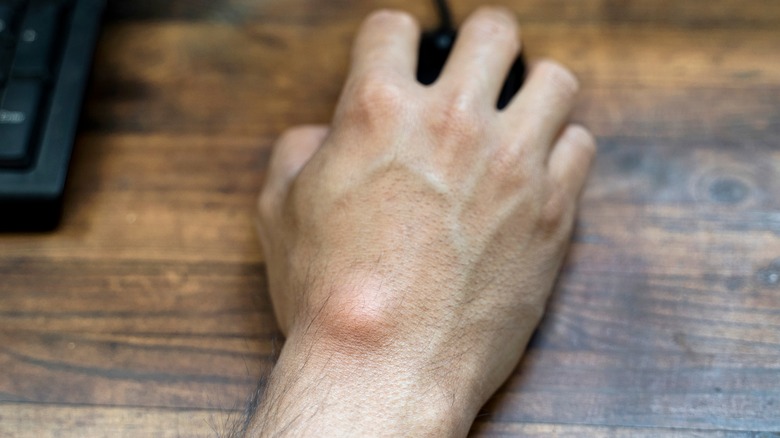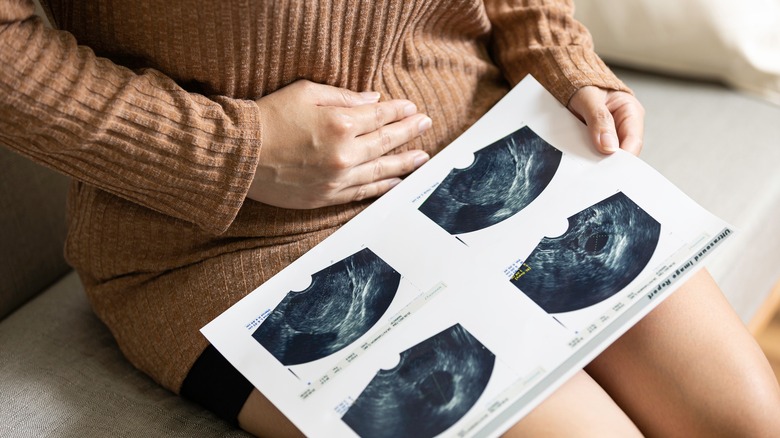This Is What Happens If A Cyst Is Left Untreated
Harvard Health Publishing defines cysts as sacs or "capsules" that grow either in the body or on the skin. Some contain an almost solid material while others are filled only with fluid.
No matter where they develop, cysts are uncomfortable. Harvard Health Publishing lists eight common locations for cysts, and some of those have several subcategories. For example, on the skin, a person may develop epidermoid cysts (which involve surface skin cells multiplying and moving deeper into the skin) or sebaceous cysts (inside glands). Harvard Health Publishing assures that fortunately, most cysts are not cancerous. However, cysts can develop complications.
According to the Mayo Clinic, epidermoid cysts will sometimes leak a smelly yellow liquid. At other times they may become red or inflamed, though this is usually limited to instances of infection. It is at this point, or at any point of severe discomfort, that the Clinic urges people to see a doctor. But what happens if a doctor is unavailable or if someone cannot afford the visit?
Leaving a cyst untreated could be a big deal -- or not
Cysts are usually little more than a cosmetic eyesore or an irritation when they start to chafe. The Mayo Clinic even lists cosmetic concerns and general irritation as two main reasons people should seek medical help with their cysts — but even so, cysts often go untreated. Some cysts, like those on the surface of the skin, may simply remain as occasionally uncomfortable bumps, or they may even go away on their own after a few months (per Harvard Health Publishing). But as explained by Nationwide Children's Hospital, cysts often continue to enlarge when left untreated. If they are injured they can rupture and, in some cases, become infected.
Internal cysts have a different set of potential complications. Mayo Clinic states that once ovarian cysts reach a certain size, the cysts can rupture, leading to severe pain and internal bleeding, or cause the ovaries to move, potentially leading to ovarian torsion. Torsion can cause nausea, vomiting, severe pain, and even loss of blood flow to the ovaries.
Harvard Health Publishing states that kidney cysts can also lead to further complications. In particular, an inherited condition known as polycystic kidney disease can lead to blood pressure control issues. If left untreated over time, this disease can even lead to kidney failure. It's not a likely outcome, but it is a serious complication that can arise if cysts are left untreated.


